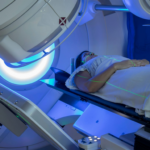
Colon cancer, also known as colorectal cancer, is one of the most common types of cancer in the world. According to the American Cancer Society, it is estimated that about 149,500 new cases of colorectal cancer will be diagnosed in 2021 in the United States, and about 52,980 people will die from the disease. Screening and early detection are key to preventing and treating colon cancer. In this blog, we will discuss the screening guidelines and the latest treatment options for colon cancer.
Screening Guidelines for Colon Cancer
The American Cancer Society recommends that adults at average risk of colon cancer start regular screening at age 45. For those at increased risk, such as those with a family history of colon cancer or other risk factors, screening may need to begin earlier and be more frequent.
There are several different screening tests available for colon cancer, including:
1. Colonoscopy: This is the most commonly used screening test for colon cancer. It involves inserting a long, flexible tube with a camera into the colon to examine the lining of the colon and rectum.
2. Fecal Immunochemical Test (FIT): This is a simple stool test that checks for blood in the stool, which can be a sign of colon cancer.
3. Stool DNA Test: This test looks for DNA changes in the stool that may indicate the presence of colon cancer.
4. CT Colonography: This is a noninvasive test that uses a CT scan to create detailed images of the colon and rectum.
5. Flexible Sigmoidoscopy: This test involves inserting a thin, flexible tube into the rectum to examine the lower part of the colon.
The choice of screening test will depend on several factors, including the individual’s risk of colon cancer, medical history, and personal preferences. It is important to discuss the options with a healthcare provider to determine the best screening plan.
Latest Treatment Options for Colon Cancer
If colon cancer is detected, the treatment options will depend on the stage of cancer and other individual factors. Some of the latest treatment options for colon cancer include:
1. Surgery: Surgery is often the first treatment for colon cancer. In many cases, the surgeon will remove the cancerous tumor and some of the surrounding tissue. If cancer has spread to other parts of the body, surgery may be used to remove those areas as well.
2. Chemotherapy: Chemotherapy is a type of cancer treatment that uses drugs to kill cancer cells. It is often used in combination with surgery to help destroy any remaining cancer cells.
3. Radiation Therapy: Radiation therapy uses high-energy X-rays to kill cancer cells. It is often used in combination with chemotherapy or surgery.
4. Immunotherapy: Immunotherapy is a type of cancer treatment that uses the body’s immune system to fight cancer cells. It works by boosting the immune system’s ability to recognize and attack cancer cells.
5. Targeted Therapy: Targeted therapy is a type of cancer treatment that uses drugs to target specific proteins or genes that are involved in the growth and spread of cancer cells.
Conclusion
Colon cancer is a serious disease, but screening and early detection can help prevent and treat it. By following the recommended screening guidelines and discussing any concerns with a healthcare provider, individuals can take an active role in protecting their health. If colon cancer is diagnosed, there are several effective treatment options available, including surgery, chemotherapy, radiation therapy, immunotherapy, and targeted therapy. With the latest advancements in medical technology and research, the outlook for those diagnosed with colon cancer is improving all the time.




